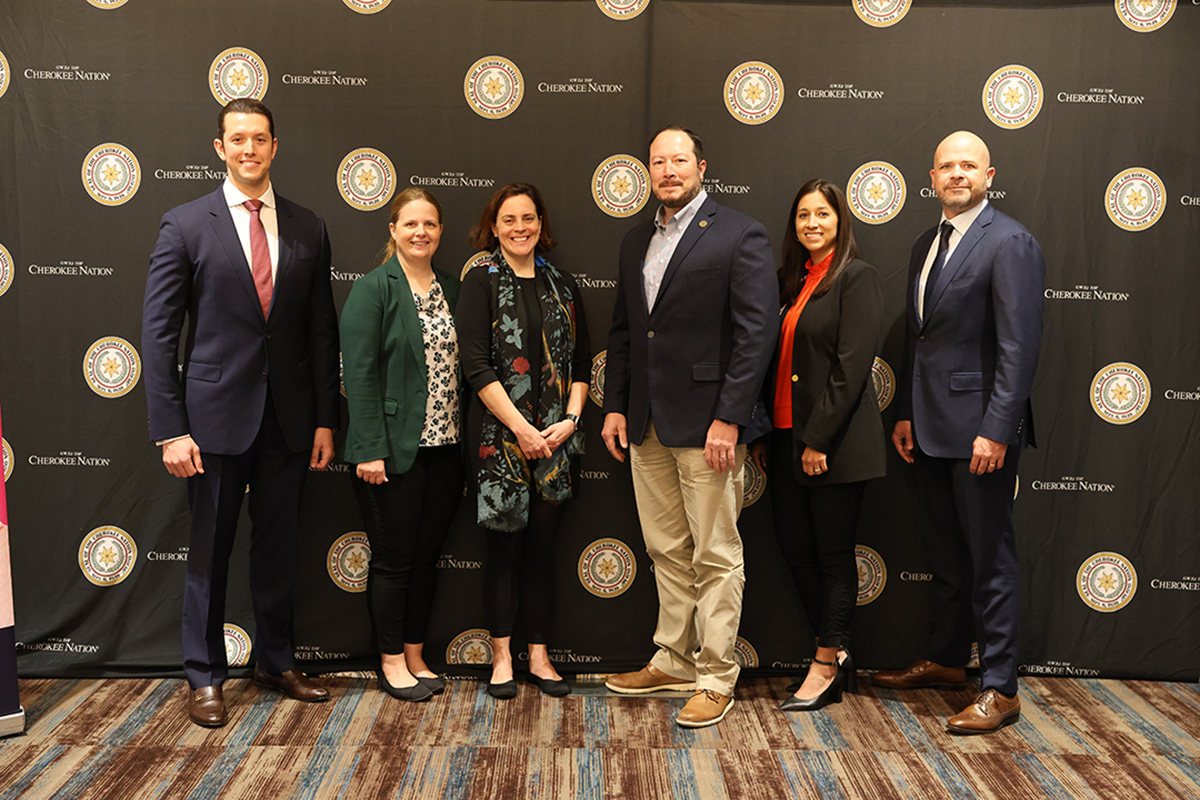TAHLEQUAH, Okla. — The Cherokee Nation recently hosted a successful kick-off event for the Advanced Research Projects Agency for Health's Novel Innovations for Tissue Regeneration in Osteoarthritis (NITRO) program. The event took place on Wednesday, April 3, at the Chota Center in Tahlequah.
The NITRO program aims to create and commercialize injectable and implantable regenerative therapies for osteoarthritis (OA), a debilitating condition affecting millions of Americans. The program's goal is to eradicate OA, a common and irreversible condition where bones and cartilage break down, often involving debilitating pain, loss of functional movement, and complex and costly reconstructive surgery.
“The Cherokee Nation has a long-standing tradition of promoting health and wellness for our people. It is fitting that we play a key role in the NITRO program, which aims to pioneer new regenerative treatments that could one day eradicate the suffering caused by osteoarthritis,” Cherokee Nation Deputy Principal Chief Bryan Warner said. “We are honored to host the brightest minds in this field and lend our perspectives on how to ensure these future therapies are accessible and effective for Native American communities disproportionately affected by this condition. Through gadugi – our Cherokee value of working together for the greater good – we can pool our shared knowledge to make unprecedented strides against osteoarthritis.”
The Cherokee Nation is a spoke member of ARPANET-H’s Investor Catalyst Hub based in the greater Boston, Mass., area. The Investor Catalyst consortium ensures that successes in research can reach the people who need them, fostering collaboration among researchers, entrepreneurs, and investors to speed the transition of innovative ideas into practical, accessible solutions. It is focused on commercializing technologies, understanding market dynamics, and providing business support to accelerate health care innovation.
“The Cherokee Nation is honored to collaborate with ARPA-H and host the kickoff event for this innovative program,” said Brian Hail, Cherokee Nation Health Services Deputy Executive Director. “Osteoarthritis has a disproportionate impact on Cherokees, and we are committed to supporting initiatives that aim to develop accessible and effective treatments for this condition.”
ARPA-H recently announced the five research teams would receive awards to create and commercialize injectable and implantable regenerative therapies for OA. The kick-off event brought together the teams of researchers and innovators from leading institutions across the United States, including Duke University, Washington University in St. Louis, University of Colorado Boulder, Columbia University, and Case Western Reserve University. These teams shared their visions for revolutionizing the treatment of osteoarthritis through innovative regenerative therapies for bone and cartilage regeneration, as well as replacement joints built from human cells.
“It is essential for NITRO to kickoff at Cherokee Nation, as osteoarthritis disproportionately impacts American Indian and Alaska Native communities. NITRO was built with the understanding that its technologies must be accessible for everyone suffering from OA now and forevermore,” ARPA-H NITRO Program Manager Dr. Ross Uhrich said. “We must engineer solutions for every patient rather than innovate for the sake of innovation. This is our chance to eradicate one of the most significant disabilities and create a future in which people look back and wonder why we ever did joint replacements in the first place. Today, we take the first step towards creating a future without OA.”
During the kick-off event, Cherokee Nation Health Services Orthopedist Dr. Henry J. Whitener delivered a presentation to the research teams and discussed how OA disproportionately affects the American Indian population, the common challenges in treating Native patients, and potential solutions that the NITRO program could unveil in the coming years.
Cherokee Nation History and Preservation Officer Catherine Gray also spoke to the research teams and gave a detailed presentation highlighting Cherokee history and culture.
For more information about ARPA-H and the NITRO program, visit https://arpa-h.gov/.

